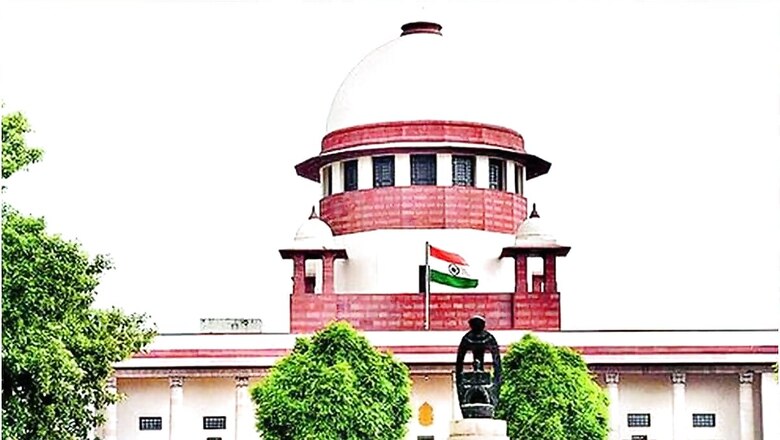
views
The Supreme Court has said merely because somebody is managing the affairs of the company, per se, he does not become in charge of the conduct of the business or responsible for the conduct of the business of the company.
“Every person who is sought to be roped in by virtue of sub-section 1 of Section 141 NI Act must be a person who at the time the offence was committed was in charge of and was responsible to the company for the conduct of the business of the company. Merely because some somebody is managing the affairs of the company, per se, he does not become in charge of the conduct of the business of the company or the person responsible for the company for the conduct of the business of the company,” the bench said.
Holding that there can’t be vicarious liability in penal provision, the top court quashed a complaint filed against certain persons, described as directors of a company, for dishonour of cheques.
A bench of Justices Abhay S Oka and Sanjay Karol noted that it was dealing with the appellants who had been alleged to be the directors of the company but were not whole time directors.
“We are not dealing with the cases of a Managing Director or a whole-time Director. The appellants have not signed the cheques. In the facts of these three cases, the cheques have been signed by the Managing Director and not by any of the appellants,” the court said.
Going through the legal provisions, the bench further pointed out that by giving an example, that in a given case, a manager of a company may be managing the business of the company. Only on the ground that he is managing the business of the company, he cannot be roped in based on sub-section 1 of Section 141 of the NI Act. “Section 141 is an exception to the normal rule that there cannot be any vicarious liability when it comes to a penal provision. The vicarious liability is attracted when the ingredients of sub-section 1 of Section 141 are satisfied. The Section provides that every person who at the time the offence was committed was in charge of, and was responsible to the Company for the conduct of business of the company, as well as the company shall be deemed to be guilty of the offence under Section 138 of the Negotiable Instrument Act.”
The complaint here alleged that the appellants are managing the company and are busy with its day-to-day affairs. It was also alleged that they are also in charge of the company and are jointly liable for the acts of the accused company.
The bench, however, said the requirement of sub-section 1 of Section 141 of the NI Act is something different and higher.
With regard to the allegation that the appellants are busy with the day-to-day affairs of the company, the bench said this is hardly relevant in the context of subsection 1 of Section 141 of the NI Act.
“The allegation that they are in charge of the company is neither here nor there and by no stretch of the imagination, on the basis of such averment, one cannot conclude that the allegation of the second respondent is that the appellants were also responsible to the company for the conduct of the business,” the bench said.
Further referring to the provision, the bench pointed out on a plain reading, it is apparent that the words “was in charge of” and “was responsible to the company for the conduct of the business of the company” cannot be read disjunctively and the same ought to be read conjunctively in view of use of the word “and” in between.
The top court thus allowed the appeal and quashed the complaint.




















Comments
0 comment